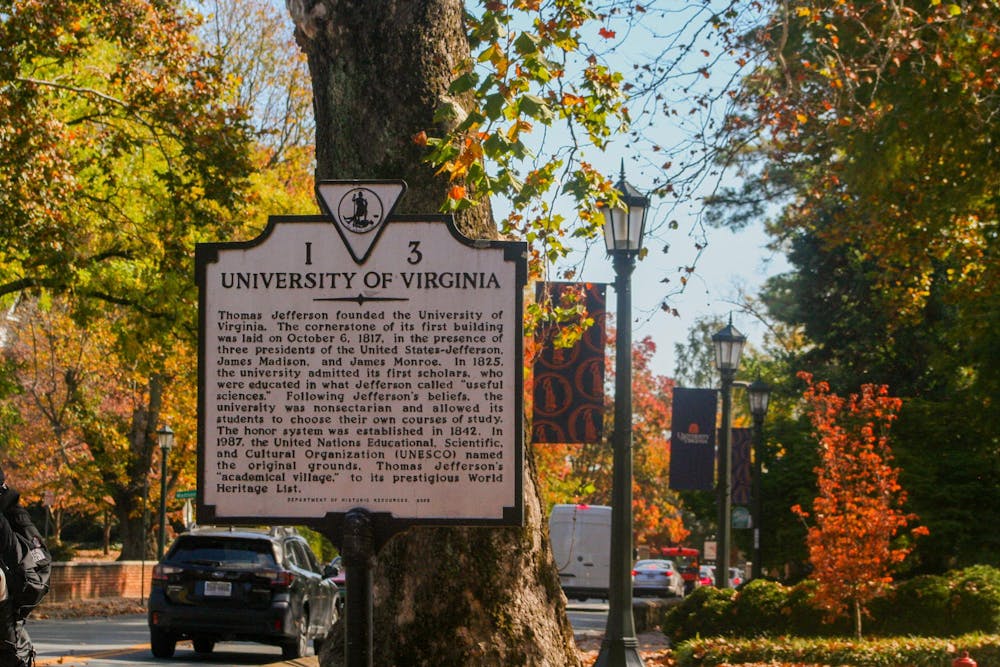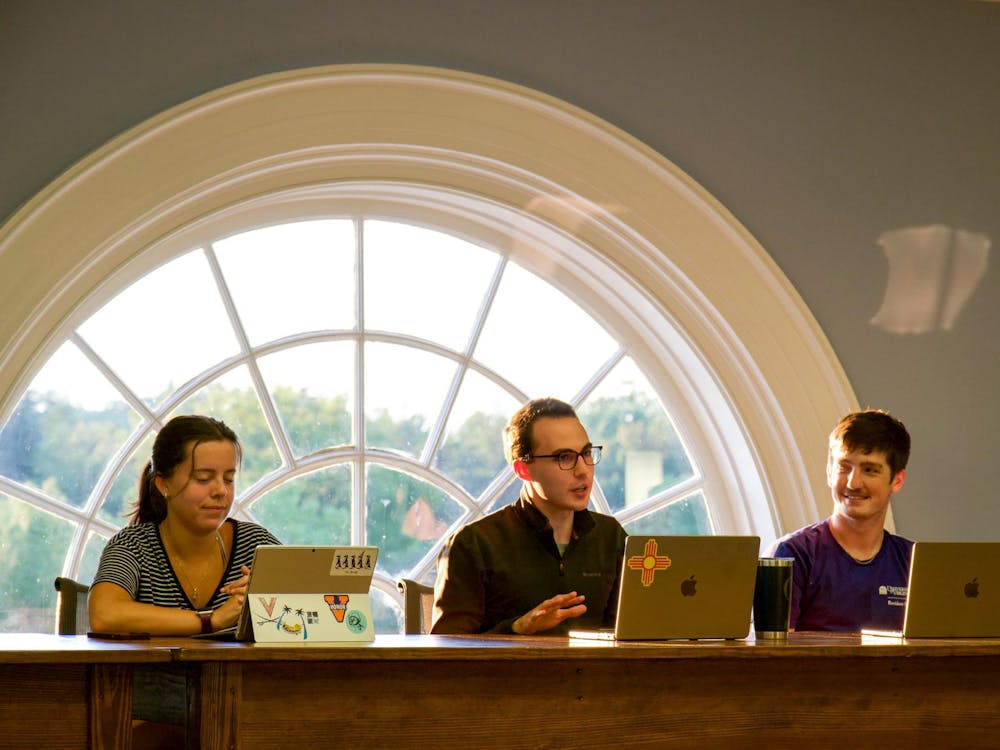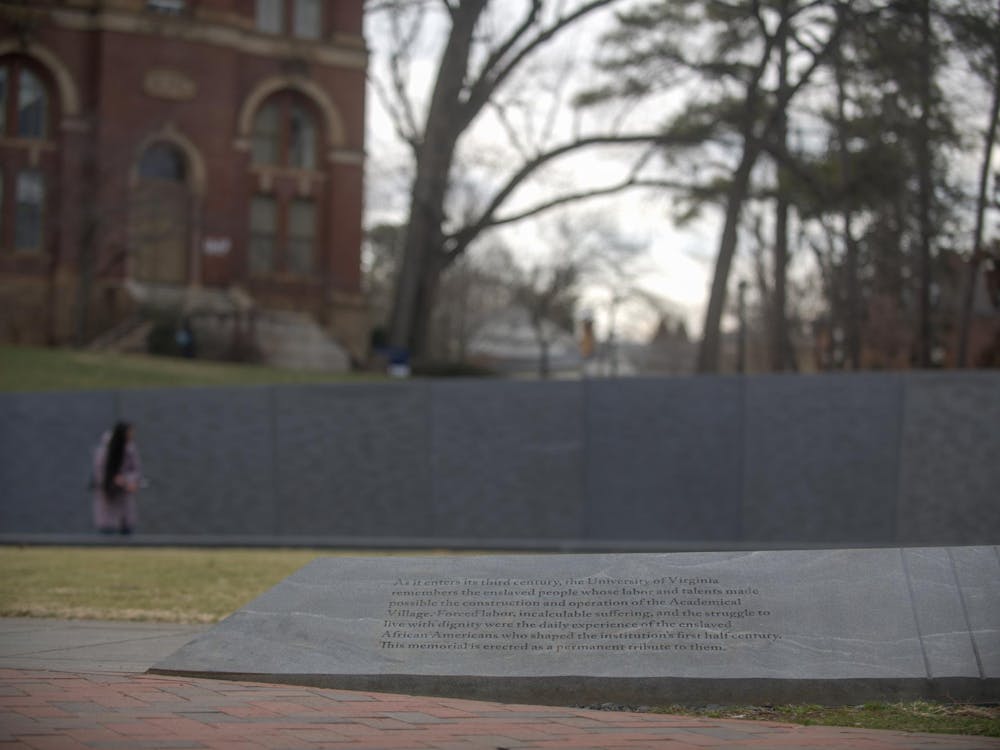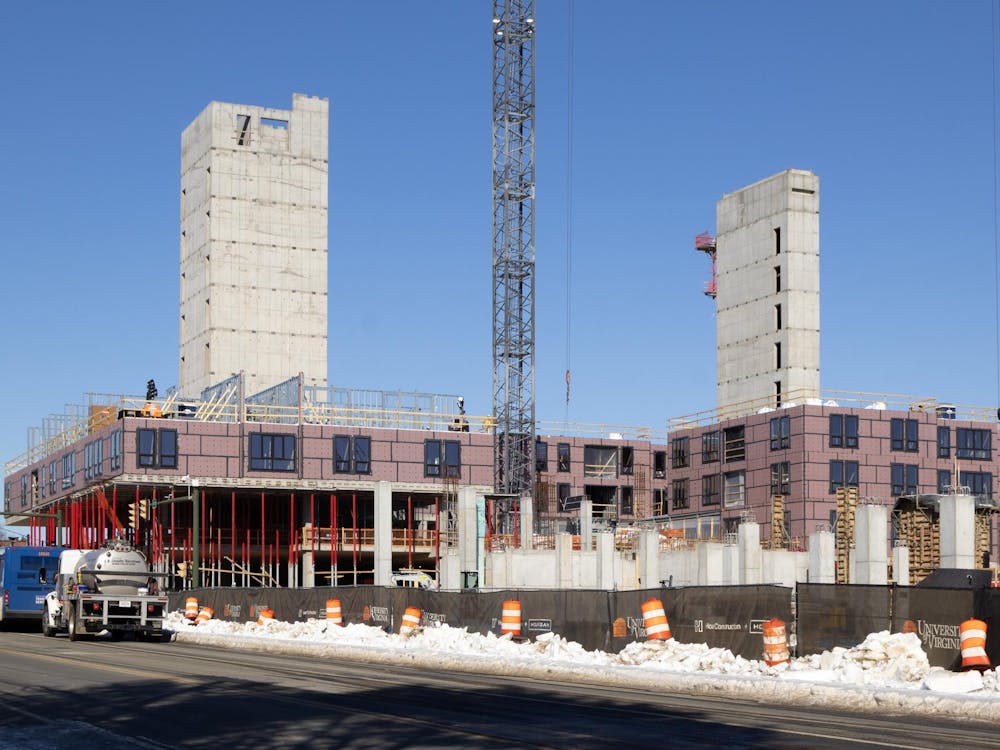With the search for the University’s 10th president underway, students are voicing cautious hopes for a leader who will prioritize transparency, integrity and the needs of the University community. While students remain uncertain about how heavily their input will weigh in the selection process, many are encouraging their peers to stay engaged and make their voices heard in the search.
Following former University President Jim Ryan’s resignation under pressure from the Department of Justice June 27, the University launched searches for both an interim president and a permanent president. Friday, the University announced a presidential search committee made up of Board of Visitors members, faculty, administrators, alumni and one current undergraduate student — fourth-year College student Gregory Perryman, who serves as the student representative on the Board.
Though most undergraduate students do not have a formal role in the selection process, the presidential search has prompted many to reflect on the qualities they believe are important to see in Ryan’s successor. Fourth-year Batten student Sarita Kelkar said she hopes the next president will bring strong principles to the role and demonstrate a clear awareness of how the federal government may shape higher education, noting community members’ alarm at Ryan’s resignation.
“Ideally, I really do want to see … a president that demonstrates an understanding of how national politics are currently tied to the future of our school,” Kelkar said.
Keoni Vega, president of the Class of 2026 and fourth-year College student, said an ideal candidate will meet the needs of the University community, continuing Ryan’s efforts such as supporting first-generation and low-income students and maintaining funding for student-led initiatives. He emphasized that these responsibilities should take precedence over any political motivations or particular ideology.
“I think it's really important to have a president who meets the moment … someone who understands the needs of the student body, the faculty, the professors, et cetera,” Vega said. “Not someone who's going to come in with some kind of agenda.”
Students also said they hope the next president will carry on Ryan’s accessibility to students. Throughout Ryan’s presidency, initiatives such as Runs With Jim, Student Lunches on the Lawn and open houses at Carr’s Hill gave students an opportunity to connect directly with Ryan. Vega pointed to these activities as examples of how Ryan went beyond the expected responsibilities of a president.
“By and large, the role of a university president isn't meant to be that involved in daily student life … but [Ryan was] actively involved in student groups,” Vega said. “His presence was truly unique.”
Even incoming students who did not experience the University under Ryan’s tenure said his example has shaped their expectations for the new president. Incoming first-year College student Jeniah Harper said she was struck by Ryan’s engagement with students. While his resignation has left her uncertain about what to expect from future leadership, she said she hopes the next president will demonstrate a similar visibility on Grounds.
“I believe a university president should play an active role in student life by showing up, listening and acting when support is needed,” Harper said in an email statement to The Cavalier Daily. “I hope U.Va.'s next president will be transparent and inclusive, recognizing the full U.Va. community.”
As student leaders reflect on the future of student self-governance, members of the broader student body are also considering how student autonomy may be affected during this transitional time. Third-year Commerce student Tanya Raja said she hopes the next president will support and strengthen the relationship between students and the administration.
“I think that [the next president] should be a strong advocate of student self-governance, just because that is really important and unique to the U.Va. experience,” Raja said. “Someone who is willing to listen to students and amplify their voices.”
While students express their hopes for an ideal candidate, many describe uncertainty over their influence in the presidential search. University Rector Rachel Sheridan said the University is “committed” to gathering input from community members, including students, beyond the search committee. The University has specifically outlined plans to host listening sessions, launch a website and provide other opportunities to gather wider input from the University community.
These commitments come amid widespread distrust in the Board of Visitors. Leaders at the University and across the Commonwealth, including the Faculty Senate, academic deans, Sen. Tim Kaine and members of the Virginia Senate, have called on the Board for transparency in the wake of Ryan’s resignation and search for a new president. Their skepticism reflects a broader pattern across higher education, where students and faculty — such as those at the University of Michigan and George Mason University — have recently voiced doubts about their governing bodies.
At the University, several students share similar reservations about the Board. Vega said he remains hopeful, though not especially optimistic, that the Board will select a candidate who reflects the priorities of the University community.
“I hope the Board goes through a traditional, year-long process to find a solid, qualified candidate [and] doesn't try to rush through someone who doesn't align with the student body and faculty's views,” Vega said. “Right now, I can't say I have faith in the Board to pick someone like that.”
Vega said students, meanwhile, may feel stuck in a “holding pattern” until it becomes clear whether their input was meaningfully considered in the selection of an interim president. The nomination form for the interim search closed July 25, and the Board has not yet released any information about the results.
For some students, the interim search offered an early glimpse into how their input may be incorporated into the selection of a permanent president. Kelkar commended the University for the opportunity to nominate candidates for the interim search but said the process did not reassure her that student voices will be reflected in the broader presidential search.
“This form felt like an attempt to try to get our student input … but having a form like this doesn't feel like something that really makes your voices heard,” Kelkar said. “It’s important to fill out, but I don't have incredible confidence, even through this democratic type of process, that [student input] really will show.”
Despite these concerns, several students stress the importance of staying engaged in the presidential search. Raja noted that opportunities such as listening sessions, nominations and public discourse play a pivotal role in shaping the University’s future.
“I think it is really important for students to be aware of resources [in the presidential search] and remember … their opinion does matter, especially in a decision so big for the University,” Raja said.
Kelkar echoed this sentiment, emphasizing that student influence in the search process relies not only on formal representation but also on continued participation. She said sustained, collective action is critical to ensuring student voices are substantively integrated into the presidential search.
“While I am a little daunted and not the most optimistic … this isn't a time where [students] can really rest,” Kelkar said. “Continuing to push and advocate and use [our] voices is something that's even more important now than ever.”







